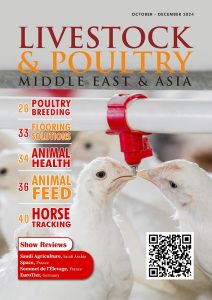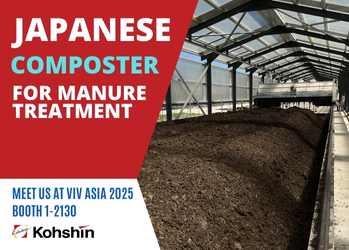ADM (NYSE: ADM) has performed a comprehensive Life Cycle Assessment (LCA) for XTRACT 6930, a plant extract-based feed additive for monogastric animals. LCA is a method to evaluate and quantify the potential environmental impacts throughout the supply chain of a product or service. Notably, ADM has compiled LCA results of XTRACT 6930 use on broiler operations within four global regions: Asia, Latin America, Europe and North America.These results suggest that XTRACT 6930 is a useful tool to mitigate the environmental footprint of the broiler meat sector. Use of ADM’s feed additive has demonstrated a reduction by at least 1.9% of the carbon footprint of live broilers, and at least 2.8% reduced carbon footprint of broiler meat production*. In other words, 1 kg CO2 eq. spent using XTRACT results in savings of 75 kg CO2 eq. in live broiler farming and a savings of 100 kg CO2 eq. in broiler meat processing*. Additionally, XTRACT 6930 has shown a negligible influence on the environmental footprint of broiler feed.
“ADM is proud to be first in the animal nutrition sector to present such robust and reliable LCA data in the plant extract-based feed additives category, externally verified for use on four continents,” said Pierre-Joseph Paoli, president of growth and marketing for ADM’s animal nutrition business. “With rising demand to mitigate the environmental impact of our industry, LCA is a necessary step to understand how a single feed solution can have a measurable impact along the entire value chain.”Poultry is a significant source of animal protein around the world. It is interesting to note that chicken consumption contributes dietary greenhouse gas emissions (6.6%) comparable to that of pork (6.5%), milk (5.1%) or cheese (7.2%) consumption in the average US diet1. Thus, limiting the environmental impact of the global broiler meat sector can have exponential results.
XTRACT 6930 leverages a combination of microencapsulated active substances found in aromatic plants and spices with demonstrated physiological effects on poultry. A thorough performance analysis of its application and results in broilers show that the feed additive supports increases in carcass yield, weight and breast weight, as well as improved feed conversion rates.



















